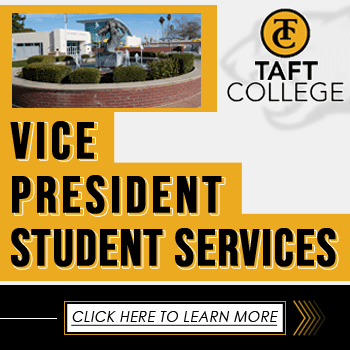Postdoctoral Researcher on Queer Perspectives for Just Sustainability Transformations
Job Description
The Faculty of Social Sciences at the University of Helsinki invites applications for the position of POSTDOCTORAL RESEARCHER on Understanding and redefining just sustainability transformations from queer perspectives for a fixed term period for the duration of 3 and half years, starting in January 2025 or as agreed.
This position is part of an ERC Consolidator Grant awarded to Associate Professor Guido Caniglia (Principal Investigator) for the project: “Whose sustainability? Understanding and redefining just sustainability transformations from disability and queer perspectives” (WEIRD) (see further information below).
By foregrounding and leveraging disability and queer perspectives around environmental sustainability, WEIRD aims to (a) critically appraise the way in which we usually think about sustainability transformations, (b) empirically understand how people with disability and from gender and sexual minorities are enacting and prefiguring alternative, just, and more environmentally sustainable futures, and (b) creatively redefine and generate new theories of justice in sustainability transformations (see: TOPIC and OBJECTIVES below for more details). The research design of the project is organized in two main tracks: the first looking at the intersection of environmental sustainability and disability and the second investigating the intersection of environmental sustainability and queer (see: APPROACH AND RESEARCH DESIGN below for more details).
RESPONSIBILITIES
The postdoctoral researcher will have to be able to engage actively and creatively with the complex inter and transdisciplinary design of the project as well as to conduct empirical and theoretical work (see: APPROACH AND RESEARCH DESIGN below for more details). Under the guidance and direction from the Principal Investigator, the postdoctoral researcher will be in charge of conducting research in the queer track of WEIRD as well as to coordinate synergies with the disability track of the project. The main tasks for the researcher over the three and half years duration of the contract will be:
- First, to lead an interdisciplinary literature review about the intersection of queer justice and environmental issues.
- Second, to design and implement the empirical investigation of one initiative or a series of initiatives that engage with environmental issues in transformative ways from queer perspectives.
- Third, to work on the theoretical synthesis of the results from the empirical investigations towards the redefinition of just sustainability transformations from queer perspectives.
- Fourth, to scope, map, and collect initiatives at the disability and queer environmental intersection globally for the development of an Atlas of disability and queer environmental initiatives around environmental sustainability.
- Fifth, to contribute to the development of ethical and methodological principles and guidelines for disability and queer (transformative) environmental research.
Over the course of the three years, the researcher will also be able to develop their own line of investigation about the intersection of queer and sustainability justice. They will do so from their own specific disciplinary background and interest (e.g., from the perspective of environmental philosophy or political ecology).
In addition, the researcher will actively contribute to teaching, PhD supervision within WEIRD, and administrative tasks in the discipline of Social and Public Policy at the University of Helsinki (up to 5% of their working time annually). It is possible to complete the teaching and administrative tasks in English.
QUALIFICATIONS
An appointee to the position must hold a doctoral degree in one of the environmental humanities (e.g., environmental ethics, philosophy of science, environmental history) or in one of the environmental social sciences (e.g., ecological economics, environmental sociology, political ecology). The appointed researcher will also have a strong motivation to develop their profile more at the interdisciplinary intersection with queer or gender studies.
The default assumption is that the doctoral degree requirement must be met by the beginning of the employment. The period following the completion of doctoral degree must not exceed three years, excluding family leave and equivalent periods of absence. Applicants must have strong theoretical interests, qualitative methods skills and an excellent command of written and spoken English.
ESSENTIAL QUALITIES AND ATTRIBUTES
Overall, the post-doctoral researcher will have:
- strong theoretical and philosophical knowledge and skill.
- experience in qualitative, mixed-methods research (or willingness to strengthen this methodological skill).
- Capacity to work collaboratively in a diverse and interdisciplinary research group.
- Ethical sensitivity and competence to work with vulnerable populations and minorities.
Successful applicants will demonstrate excellent methodological and academic writing skills. Strong organizational skills are required in order to plan and conduct fieldwork independently as well as to contribute to the organization and facilitation of workshops. As the postdoctoral researchers will also be working as a team with other researchers, including PhD students, it is essential that applicants demonstrate excellent collaboration and communication skills.
WHAT WE OFFER
University of Helsinki is an equal opportunity employer and offers an attractive and diverse workplace with a variety of development opportunities and benefits. The annual gross salary range will be approx. €43,000 – €48,000, depending on the appointee’s qualifications and experience. Standard Finnish pension benefits and occupational health care are provided for university employees. Further information can be obtained online. The employment contract will include a probationary period of six months.
Finland is a member of the European Union, has high quality free schooling (also in English) and generous family benefits and healthcare. Finland was recently ranked as the best country in the world for expat families, and Helsinki in the world’s top ten most livable cities. Finland and the Helsinki region feature leading research and innovation facilities, clean environment, affordable accommodation, and excellent international, national, and local transport connections. For more information about working at the University of Helsinki and living in Finland, please see the website.
The chosen applicants are expected to reside in Finland while employed by the University of Helsinki. The Faculty of Social Sciences provides assistance in relocation.
HOW TO APPLY
The University of Helsinki welcomes applicants from a variety of genders, linguistic and cultural backgrounds, and minorities.
Please submit your application, together with the required attachments, through the University of Helsinki Recruitment System via the link "Apply now" (“Hae nyt”). Use your current email address to register to the Recruitment System. Only applicants who are currently employed by the University of Helsinki are requested to submit their application via the link “Employee login”. The closing date for applications is October 31, 2024.
Applicants are requested to enclose with their applications the following documents in English:
1) A curriculum vitae that includes all publications and the names, positions and contact details of two referees; 2) A cover letter (max 1 page) highlighting their motivation to be part of WEIRD as well as capacities and qualities that make them an good fit with the project ; 3) A statement (max 2 pages) outlining how the applicant would address the tasks highlighted in the section RESPONSIBILITIES, 4) A statement (max 1 page) about how they would contribute to the development of the intersection of queer and environmental issues from their own research and disciplinary background.
Shortlisted candidates will be interviewed in November.
FURTHER INFORMATION
Further information about the positions and the research project may be obtained from Associate Professor Guido Caniglia, guido.caniglia(at)helsinki.fi.
Topic and oblectives of the project
A major adagio of the Sustainable Development Goals is “Leave no one behind” implying that actions addressing the sustainability challenges of our time should not be only ecologically beneficial, but also emancipatory for the most vulnerable and marginalized. Yet, many vulnerable and marginalized groups are often left behind in sustainability research and actions. Despite the increasing engagement of disabled and queer scholars and societal actors for environmental and climate justice, their voices are rarely considered in research and action on sustainability transformations. Using an inter and transdisciplinary approach, this project aims to understand and redefine the often-neglected contributions of disability and queer scholarship and societal initiatives around sustainability towards new theories, methodologies, and ethics of just and emancipatory sustainability transformations. WEIRD will: (1) overcome the fragmentation of disability and queer scholarship around sustainability; (2) explain how disability and queer societal initiatives contribute to just sustainability transformations by subverting ableistic and cis/heteronormative social norms; (3) develop new theories of emancipatory sustainability transformations that rely on subversive social norms; (4) generate new transformative methodologies in sustainability science; (5) redefine transformative justice for sustainability and the ethics of sustainability science.This project is groundbreaking because it will generate new theories, methodologies and ethics to systematically integrate issues of justice and emancipation in the study of sustainability transformations that are anchored in, but not limited to, disability and queer perspectives. Overall, through the synergistic achievement of all its objectives, WEIRD will enhance the potential of sustainability science to generate new knowledge about and for just sustainability transformations.
Approach and research design of the project
The research design of the project is organized in two main tracks: the first looking at the intersection of environmental sustainability and disability and the second investigating the intersection of environmental sustainability and queer. Both tracks are highly interdisciplinary as it engages in integrated ways with different academic disciplines. WEIRD is situated in the emerging field of transformative and transdisciplinary sustainability science includes approaches, for example, from the environmental humanities, political ecology, philosophy of science, science and technology studies, social-ecological system research and many more. Furthermore, as WEIRD explicitly engages issues of justice, emancipation, and transformation from disability and queer perspectives, it also engages with disability studies, queer studies and gender studies. The project also has transdisciplinary elements as it will involve practitioners, activists, researchers and societal actors from the sustainability, disability and queer communities towards the co-creation of new theories and methodologies.
The two tracks of the project also combine theoretical and empirical elements. The initial and final phases of the project are more theoretical. At the beginning, most work is going to be about scoping and synthetizing existing works at the intersection disability studies and queer studies, respectively, with environmental sustainability. In the final stages, the synthesis and theoretical integration of insights will also require theoretical engagement. The middle phases of the project aim to empirically understand the wide variety of initiatives and experiences that people with disabilities and people from gender and sexual minorities are engaging with to enact, envision, and rethink sustainability transformations that engage with disability and queer justice as well as with environmental sustainability.
The Faculty of Social Sciences
The Faculty of Social Sciences is Finland’s leading research and education institute in the social sciences, and the country’s most diverse social sciences faculty in terms of the range of its disciplines and fields of research. The Faculty has a strong international research profile and an international master’s programme, and several of its disciplinary units have been rated among the top 50 in the world. The Faculty has approximately 500 research and teaching staff, and each year it awards some 350 bachelor’s degrees, 400 master’s degrees and more than 40 doctoral degrees.
*Please mention you saw this ad on VeteransInCareers.*
Be Seen By Recruiters at the Best Institutions
Create a FREE Profile to be Seen!






